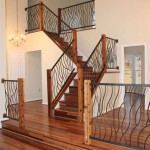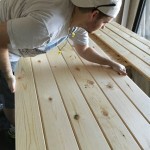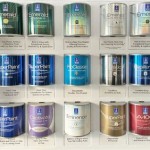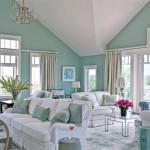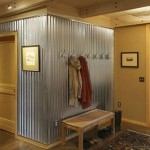Interior Design Jobs in Charleston, SC: A Thriving Market
Charleston, South Carolina, is a city renowned for its historical architecture, vibrant culture, and burgeoning economy. This combination creates a dynamic market for interior design services, leading to a consistent demand for skilled and passionate interior designers. The city's aesthetic, blending historical charm with modern influences, necessitates professionals capable of navigating a diverse range of design styles and project types. This article will explore the interior design job market in Charleston, highlighting the opportunities available, the necessary skills and qualifications, and the key factors influencing the demand for interior design services.
The interior design industry in Charleston encompasses a wide spectrum of specializations, from residential design focusing on single-family homes and historic renovations to commercial design catering to hotels, restaurants, retail spaces, and corporate offices. Furthermore, the increasing popularity of short-term rentals and vacation properties fuels the demand for designers specializing in creating appealing and functional spaces for the hospitality industry. The geographical location of Charleston, with its coastal setting and proximity to other major cities, also contributes to its attractiveness for both design professionals and businesses seeking design expertise.
The Spectrum of Interior Design Opportunities
The interior design job market in Charleston presents opportunities for professionals at various stages of their careers. Entry-level positions often involve assisting senior designers with project management, material sourcing, and client communication. These roles provide valuable experience and allow aspiring designers to develop their skills under the guidance of industry veterans. Mid-level positions typically require several years of experience and involve managing projects independently, developing design concepts, and overseeing the implementation process. Senior-level positions demand extensive experience and expertise, often involving leading design teams, managing large-scale projects, and cultivating client relationships.
Specifically, opportunities can be found in the following areas:
Residential Design: This segment caters to homeowners seeking to renovate, remodel, or decorate their homes. The focus is on creating comfortable, functional, and aesthetically pleasing spaces that reflect the client's personal style and needs. Charleston's historic architecture presents unique challenges and opportunities for designers specializing in preserving and enhancing period features while incorporating modern amenities.
Commercial Design: This area encompasses a wide range of projects, including office spaces, retail stores, restaurants, hotels, and healthcare facilities. Commercial designers must consider factors such as functionality, branding, ergonomics, and regulatory compliance. In Charleston, the tourism industry drives significant demand for commercial design services, particularly in the hospitality sector.
Hospitality Design: This niche focuses on creating memorable and engaging experiences for guests in hotels, resorts, and other hospitality venues. Designers in this field must understand the specific needs of the hospitality industry, including considerations for durability, maintenance, and guest satisfaction. Charleston's thriving tourism industry provides ample opportunities for hospitality designers.
Kitchen and Bath Design: This specialization focuses on the design and renovation of kitchens and bathrooms. These spaces are often the most frequently used rooms in a home, and designers must consider functionality, storage, and aesthetics. Charleston's housing market often involves remodeling older homes, creating significant demand for skilled kitchen and bath designers.
Interior Architecture: Some firms focus on the architectural aspects of interiors, requiring knowledge of building codes, space planning, and construction techniques. This area often involves working closely with architects and contractors to ensure that the design is structurally sound and meets all regulatory requirements.
Essential Skills and Qualifications
Securing an interior design job in Charleston requires a combination of education, skills, and experience. A bachelor's degree in interior design or a related field is typically required for most professional positions. Coursework should include topics such as space planning, architectural drafting, color theory, materials and finishes, and building codes.
Technical Skills: Proficiency in computer-aided design (CAD) software, such as AutoCAD, Revit, or SketchUp, is essential for creating accurate and detailed drawings and renderings. Knowledge of building information modeling (BIM) software is increasingly valuable, particularly for larger commercial projects. Software skills related to image editing and presentation, such as Adobe Photoshop and InDesign, are also advantageous.
Design Skills: A strong understanding of design principles, including balance, proportion, rhythm, and harmony, is crucial for creating visually appealing and functional spaces. Knowledge of different design styles, from traditional to contemporary, is also important for meeting the diverse needs of clients. An understanding of color theory, material selection, and lighting design is essential for creating cohesive and harmonious environments.
Soft Skills: Effective communication skills are vital for interacting with clients, contractors, and other stakeholders. Strong project management skills are necessary for organizing and coordinating all aspects of a design project, from initial concept to final installation. Problem-solving skills are essential for addressing unexpected challenges and finding creative solutions. Networking and relationship-building skills are important for cultivating client relationships and expanding professional connections.
Certification and Licensing: While not always mandatory, professional certifications, such as the National Council for Interior Design Qualification (NCIDQ) certification, can enhance credibility and demonstrate a commitment to professional standards. Some states require interior designers to be licensed, particularly for projects involving public spaces. It is critical to verify the requirements for Charleston, SC.
Factors Influencing the Market Demand
Several factors contribute to the ongoing demand for interior design services in Charleston. The city's strong economy, fueled by tourism, healthcare, and manufacturing, supports a robust housing market and commercial development, leading to increased demand for design professionals. The influx of new residents, drawn to Charleston's quality of life and job opportunities, also contributes to the demand for residential design services.
Economic Growth: Charleston's economy has experienced steady growth in recent years, creating a favorable environment for businesses and individuals alike. This economic prosperity translates into increased investment in real estate and renovations, driving demand for interior design services.
Tourism Industry: Charleston is a popular tourist destination, attracting millions of visitors each year. The hospitality industry relies heavily on well-designed and inviting spaces to attract and retain customers. This demand for quality design fuels the need for skilled hospitality designers.
Real Estate Market: Charleston's real estate market has been consistently strong, with high demand for both residential and commercial properties. Homeowners and business owners alike invest in interior design to enhance the value and appeal of their properties.
Historic Preservation: Charleston is known for its rich history and well-preserved architecture. This emphasis on historic preservation creates unique opportunities for interior designers specializing in restoring and renovating historic buildings. These projects require specialized knowledge and skills to ensure that the design is both aesthetically pleasing and historically accurate.
Changing Consumer Preferences: As consumer preferences evolve, there is an increasing demand for innovative and sustainable design solutions. Clients are becoming more interested in eco-friendly materials, energy-efficient lighting, and smart home technology. Interior designers who can incorporate these elements into their designs are in high demand.
To further enhance career prospects, aspiring and established interior designers should maintain a strong professional portfolio showcasing their best work. This portfolio should be readily accessible online and in print, demonstrating a diverse range of projects and design styles. Actively participating in industry events, such as design conferences and trade shows, provides valuable networking opportunities and keeps designers abreast of the latest trends and technologies. Continuous professional development, through workshops, seminars, and online courses, is essential for staying competitive in the ever-evolving field of interior design. By acquiring the necessary skills, building a strong portfolio, and staying connected to the industry, interior designers can thrive in the vibrant Charleston market.

Interior Design Careers Jill Howard Studio Charleston Sc

The 9 Best Interior Designers In Charleston Sc Rspace

The Studio By Ashton Woods In Charleston

Coastal Kitchen Interior Designers In Charleston Sc

Charleston Interior Designers Predict 2024 Trends Will Include Fifth Wall Warmer Palette Features Postandcourier Com

Meyer Davis Crafts Italian Restaurant Sorelle In Charleston

Interior Design Charleston Sc Jill Howard

Interior Design Charleston Sc Jill Howard
:strip_icc()/cdn.cliqueinc.com__cache__posts__197557__inside-the-bold-charleston-home-of-an-interior-designer-1834191-1468350542.700x0c-9439c0602d7247089d1410f52d721894.jpg?strip=all)
This Interior Designer S Charleston Home Breaks Every Rule

Architects Charleston Sc Herlong Architecture Interior Design
Related Posts

